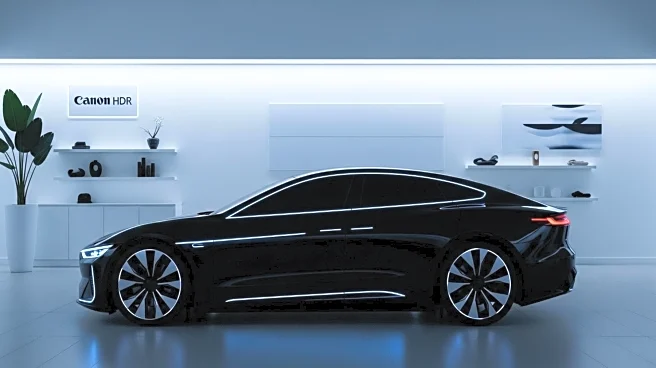What is the story about?
What's Happening?
Tesla has launched a new version of its Model Y, which is marketed as more affordable but is priced $2,000 higher than the previous model. This price adjustment follows the expiration of the $7,500 federal electric vehicle tax credit, which had previously helped reduce costs for consumers. Elon Musk, Tesla's CEO, had invested $200 million in campaigning for this tax credit. The new Model Y's price increase has sparked criticism, as it contradicts the notion of affordability. Meanwhile, Volvo has introduced its EX30 Single Motor model, priced under $40,000, offering a competitive alternative to Tesla's offerings. Additionally, ComEd is advancing its electric vehicle initiatives with a $100 million investment in new chargers.
Why It's Important?
The expiration of the federal EV tax credit has significant implications for the electric vehicle market in the U.S. Consumers may face higher costs for electric vehicles, potentially slowing the adoption rate of EVs. Tesla's price increase could impact its market competitiveness, especially as other automakers like Volvo offer more affordable alternatives. The situation highlights the importance of government incentives in promoting sustainable transportation solutions. ComEd's investment in EV infrastructure is crucial for supporting the growth of electric vehicles, ensuring that charging facilities are accessible to more consumers.
What's Next?
Tesla's pricing strategy may prompt reactions from consumers and competitors, potentially influencing market dynamics. Automakers might seek alternative ways to offer competitive pricing or lobby for new incentives to support EV adoption. The development of EV infrastructure, such as ComEd's investment, will be vital in accommodating the anticipated increase in electric vehicle usage. Stakeholders, including policymakers and industry leaders, may need to reassess strategies to maintain momentum in the transition to electric vehicles.
Beyond the Headlines
The price increase of Tesla's Model Y raises questions about the affordability of electric vehicles and the role of government incentives in shaping consumer behavior. The situation underscores the challenges faced by automakers in balancing profitability with accessibility. As the EV market evolves, ethical considerations regarding pricing and accessibility may become more prominent, influencing public perception and policy decisions.

















